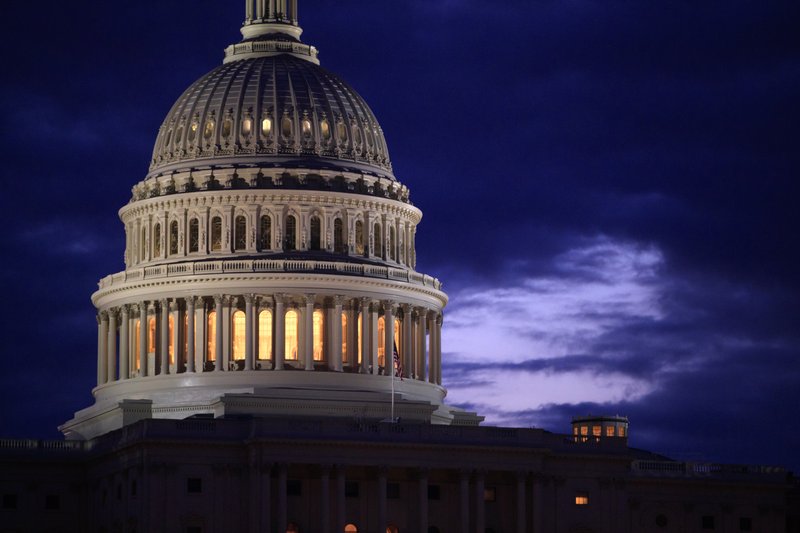WASHINGTON -- Since former President Barack Obama's health care overhaul was enacted in 2010, Republicans have blamed Democrats for rising premiums and diminished choices of insurers and doctors in many markets. But after the failure last month of the House Republicans' replacement bill, many in the party are now saying they own the health care issue.
Repealing the Patient Protection and Affordable Care Act has been a paramount GOP campaign promise that helped the party grab control of the House in 2010, the Senate in 2014 and and the White House in November.
Yet now Republicans are in full control of government but have been unable to deliver on their pledge. Instead, they're trying to recover from a failed bill that party moderates and conservatives hated. The setback sparked a dispute between Trump and the conservative House Freedom Caucus, and it threatens to alienate GOP base voters.
"If you say, 'This is Obamacare, it's failing,' people can say, 'Well, we elected you to fix it,'" said Tom Davis, a former Republican congressman from Virginia who led the House GOP's campaign committee.
[INTERACTIVE: Compare new health care proposal with Affordable Care Act]
"We have the House, the Senate, the White House," said David Winston, a GOP strategist who advises congressional leaders. "People are going to expect points on the board."
Davis, Winston and others note that it's a long way to the November 2018 elections. That's when Republicans will defend their congressional majorities, so GOP successes on issues such as tax cuts and infrastructure, which affect the economy and jobs, could overshadow their struggles on health care.
In addition, party leaders hope to produce new health care legislation. It's unclear how they'd do that without compromising with Democrats, who currently have little motivation to help Republicans. That could change if Democrats decide a deal is better than gambling on whether voters blame them and the Affordable Care Act should premiums rise and the number of insurers decline significantly.
"They both have risk, and that's a recipe for, ultimately, some action to be taken," said Mike Leavitt, who served as health secretary under former President George W. Bush.
[PRESIDENT TRUMP: Timeline, appointments, executive orders + guide to actions in first 100 days]
For now, there are ominous signs for Republicans.
Threatening to reduce federal health care aid speaks directly to voters in states that backed Trump. All 13 states with the highest proportion of people getting federal subsidies for their insurance premiums voted for him in November, according to federal data.
Democrats view all that as campaign-ad fodder. House Speaker Paul Ryan, R-Wis., protected many Republicans by averting a House vote on the doomed bill, but several dozen people supported it in committees.
"Clearly the Republicans own this," said Rep. Ben Ray Lujan, D-N.M., who heads House Democrats' campaign organization. "We will continue to make sure that the American people know about their votes."
Failure to dismantle Obama's law also could demoralize voters and dampen turnout in next year's congressional elections. Brent Bozell, chairman of the conservative group For America, said Friday that it would be "absolute suicide" for the GOP to stay on its current, unsuccessful course.
"Just saying, 'Give us four more years and we'll repeal it' is going to be very hard" to sell to voters, said Robert Blendon, professor at the Harvard School of Public Health.
Since the failure of the health care bill, Trump has signaled that he may work with Democrats to achieve key goals. Some Democrats have echoed those calls for compromise.
"I think most of our caucus wants to work with them," Senate Minority Leader Charles Schumer, D-N.Y., said in a recent interview, referring to the GOP. "But it requires working in a compromise way."
And Democrats have seized on the power they wield in the passage of a government-spending bill.
Republicans need Democrats to help them avoid a government shutdown at the end of April, when the current spending deal to fund the government expires. Democrats have decided, for now at least, that they will use that power to reassert themselves and, through negotiations with Republicans, ensure the continued funding of their top priorities.
"I think we have a lot of leverage here," said Sen. Chris Van Hollen, D-Md. The GOP is "going to need our help putting together the budget, and that help means we can avoid some of the outrageous Trump proposals and advance some of our own proposals."
Information for this article was contributed by Kevin S. Vineys of The Associated Press and by Kelsey Snell of The Washington Post.
A Section on 04/02/2017

